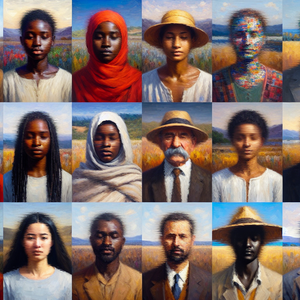Beyond the Resume: The Social Impact of Micro-Internships

Access has historically been a significant barrier in internships, with many competitive opportunities being unpaid or located in expensive urban centers. Micro-internships, typically paid and remote, address this by democratizing access to professional experience. Platforms like Parker Dewey and Forage connect students from diverse backgrounds with employers seeking help on short-term projects. For first-generation college students, micro-internships level the playing field by focusing on skills rather than connections and reducing the intimidation factor. This shift is opening doors for a more diverse talent pool to engage in the professional world.
Opening Doors for Underrepresented Talent
Data from the National Association of Colleges and Employers (NACE) shows students from underrepresented backgrounds are less likely to secure internships, affecting their job prospects post-graduation. Micro-internships help bridge this gap by offering accessible, paid, and resume-worthy experiences. For example, Maya, a first-generation Latina student, completed multiple micro-internships remotely, expanding her network and ultimately securing a full-time job. Stories like Maya’s are increasingly common as micro-internships become entry points into industries lacking diversity.
Skills, Confidence, and Social Capital
Micro-internships provide more than technical skills; they help students build social capital—informal networks and relationships crucial for career advancement. For those with limited exposure to professional environments, these gigs teach workplace norms, communication styles, and unwritten professional rules. The variety and pace of micro-internships foster adaptability and confidence, enabling students to manage tasks, meet deadlines, and deliver results. These experiences cultivate critical, transferable skills and empower graduates to shape their own career paths.
A More Equitable Future of Work
The rise of micro-internships marks a shift toward a more inclusive and equitable workforce. By lowering financial, geographical, and social barriers, micro-internships create opportunities for students traditionally excluded from career pipelines. The recent surge in micro-internship postings allows students and graduates to gain skills and connections in real time, without long-term commitments. As employers increasingly value diverse and nontraditional talent, micro-internships are becoming a standard feature of early career development, reshaping the professional landscape.
Micro-internships are more than just résumé builders; for underrepresented and first-generation students, they are accessible, practical, and empowering opportunities to gain skills, confidence, and connections. As work evolves, micro-internships are redefining career preparation and expanding professional participation, helping to create a workforce that is more reflective, inclusive, and equitable—one project at a time.
Campus Recruiting Coordinator (Diversity & Inclusion Focus)
Google, Deloitte, JPMorgan Chase
Core Responsibilities and Skills
Develop and execute campus outreach strategies to attract underrepresented and first-generation students for internship and micro-internship programs.
Partner with colleges, student organizations, and platforms like Parker Dewey to build inclusive candidate pipelines.
Analyze diversity hiring metrics and adjust recruitment tactics based on data-driven insights.
Requires experience in university relations and a strong understanding of DEI (Diversity, Equity, Inclusion) best practices.
Virtual Internship Program Manager
IBM, Accenture, educational nonprofits
Core Responsibilities and Skills
Design, launch, and oversee remote, short-term project-based internship programs for students and recent grads.
Coordinate between internal teams and external partners (such as Forage or university career centers) to match candidates with project opportunities.
Track participant progress, gather feedback, and measure the impact of virtual programs on talent development.
Ideal candidates have program management experience and skills in remote collaboration tools (e.g., Slack, Zoom, Trello).
Workforce Development Specialist (Early Career Pathways)
Urban Alliance, Year Up, public workforce agencies
Core Responsibilities and Skills
Create and implement initiatives that support nontraditional career entry points, such as micro-internships, apprenticeships, or project-based gigs.
Advise students and job seekers on building marketable skills and navigating alternative routes into competitive industries.
Evaluate and report on program outcomes, focusing on social mobility and equity goals.
Requires knowledge of labor market trends and experience working with diverse populations.
Micro-Internship Platform Operations Analyst
Parker Dewey, Handshake, Forage
Core Responsibilities and Skills
Monitor and optimize the daily operation of micro-internship platforms, ensuring a smooth experience for both employers and student users.
Analyze data on project postings, candidate engagement, and completion rates to drive process improvements.
Collaborate with tech and customer support teams to resolve issues and enhance platform accessibility.
Strong analytical skills and familiarity with SaaS operations are essential.
Equity-Focused Career Coach
College Possible, iMentor, university career centers
Core Responsibilities and Skills
Provide personalized coaching to underrepresented college students and new grads, guiding them through micro-internship applications and professional development.
Conduct workshops on résumé building, virtual interviewing, and workplace etiquette tailored to first-generation and low-income students.
Cultivate employer relationships to identify inclusive opportunities and advocate for students’ unique strengths.
Requires coaching certification or counseling background, and cultural competency.


